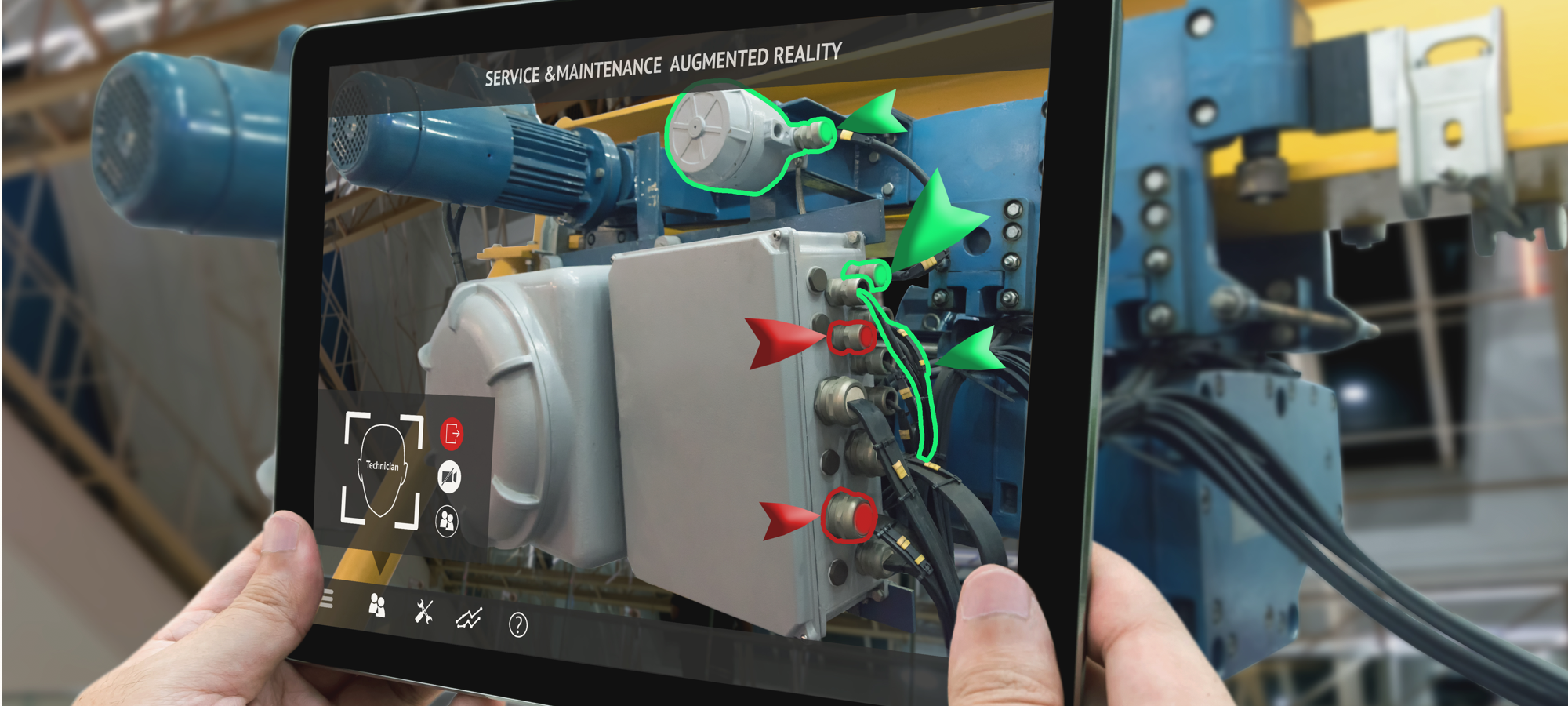5 Industry 4.0 applications that will change your world
Industry 4.0, the digital revolution, smart industry: all terms that we’re probably familiar with. However, their applications range from clever cost-cutting tweaks to mind-blowing innovations. Regardless, new technologies are poised to bring about a revolution in the way we work and think in just the next year or two.

Making waves in our everyday lives and beyond
Blockchain, artificial intelligence and machine learning, augmented and virtual reality and robotics – dazzling new innovations that continue to push previously immoveable boundaries every day. Most of them aren’t new, but with new computing and data processing capabilities, they are becoming more and more ingrained in our professional and daily lives.
Take the Waze navigation app, for instance – users are unwittingly training an AI system to become better at helping other users. Ikea Place is an app that uses augmented reality to simulate the fit of furniture in your living room. But it’s not just our personal lives that stand to gain; businesses are already reaping the benefits of the greater efficiency, effectiveness and interconnectedness that these technologies enable.
AI is driven by data – and shapes it as well
Monday rolls around. Imagine wrapping up the morning’s marathon meeting and looking forward to lunch. But first, it’s time to upload the meeting report into a document management system – something few of us enjoy, but mainly because we have to manually process information that is already largely structured.
This is an area to which AI can be applied with excellent results. A system can be designed to recognize the document type upon upload, and to automatically assign meta data or tags as needed. In fact, the more information added, the more accurate the system becomes. This doesn’t just reduce user workloads; it also increases the quality and usability of the data itself. Added bonus: why not just have the bot record the meeting minutes?
The same tech can be used to recognize images. Facebook already uses an AI engine to process your holiday pics, assisting you in tagging them – but also mapping all elements that can be found in the picture for more targeted advertising directed at you.
Businesses are already reaping the benefits of the greater efficiency, effectiveness and interconnectedness that these technologies enable.
Blockchain: more adaptable than you might think
Blockchain is a digital distributed ledger that offers a broad range of new opportunities beyond its more familiar context of cryptocurrency. For example, it could be used to create a digital archive that complies with both local and European standards, or a tool to prove the authenticity of official documents and certificates.
Research companies produce scientific output that can serve as the basis of patents. These documents are sent to notaries to make them official, creating a record that can serve as evidence in case of lawsuits. Blockchain offers the ideal alternative to the traditional notary public by employing an automatic process, anchoring relevant documents in a blockchain through a hash key.
AR and VR enriches our experience of the workplace
Augmented reality is increasingly used in the manufacturing industry, initially as experiments. For example, it’s becoming increasingly feasible for technicians to perform maintenance processes using a Hololens. Through this tool, specialists have access to a comprehensive digital cockpit that offers real-time information about the device, as well as technical documentation and instructions.
Analytics leads to powerful business insights
Content analytics builds upon analytics and reporting approaches, using machine learning to derive usable insights from unstructured data like documents. For example, algorithms capable of evaluating your as-built blueprints based on maintenance details and the content of the drawings in question, or algorithms that enable automatic identification of personal data – a hot topic since GDPR came into effect.
In fact, sentiment analysis can be performed on all e-mails received by your customer service department, on a recording of a customer service phone call, to determine how the case can be handled best.
Think big – but start small
This isn’t science fiction – this is happening right now in companies active in a wide range of business activities. The only thing standing in your way is your imagination – but don’t try to embrace all of these technologies at once. Choose specific and well-defined processes with big impacts on your organization to serve as experimental starting points. All you need is an open mind, high-quality data and some inspiration.
Need some help identifying the best applications of Industry 4.0 technologies in your company? Get in touch with one of our experts.



